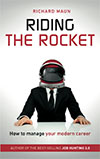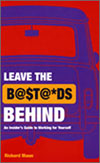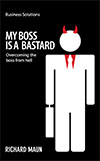better business blog
Tips and stories to add value to you and your organisation

Be Found
I was musing on what to write this week and would have told you the story of how our guest’s microphone packed up live on air, during Business Life. We’d have emailed the engineers for help, if the internet hadn’t gone down and blinded us to the outside world. Studios are their own little desert island and you could be wrestling a bear in there and nobody would notice. Well, not until the bear went on air to apologise for the kerfuffle.
However, that story is one of stretched fibres in a cable and too dull to tell really. We panicked calmly, broke for music, swapped mics over and carried on. Another experience in my radio-land notebook.
So, instead of telling you about that, here’s a good little story about an email.
Over the weekend I received an interesting email that reads:
“Dear Richard
I’ve just read your book Job Hunting 3.0 and found it truly inspiring and very practical. I’d like to connect to you on LinkedIn.
Good wishes
Carl”
I’ve changed his real name, but this is a real email from a happy customer. How lovely for him to write and I’m reminded that 3 years ago when I wrote the book I made sure to pepper it with contact details.
People do like to say hello and you never know where it will lead, so my point this week is:
If we’re easy to find, we’re easy to do business with.
How easy are you to find? Isn’t it time you swapped your witty Twitter name for your own name (first name at least) so people can talk to you and remember you more easily? People buy people, and the ones that get found first get the money!
How can you make it easier for people to find you? Are your contact details on your reports and products? Who knows you’re here?
I now know Carl. And I have a great little book endorsement to share.
Have fun being found!
e-publishing
Click icon for details


recent posts
browse archive
books
Click cover to view details on Amazon
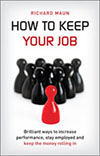
How to Keep Your Job
Brilliant ways to increase performance, stay employed and keep the money rolling in
Published 2011 Marshall Cavendish
208pp
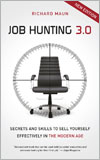
Job Hunting 3.0
Secrets and skills to sell yourself effectively in the Modern Age
Published 2010 Marshall Cavendish
260pp

 RSS
RSS